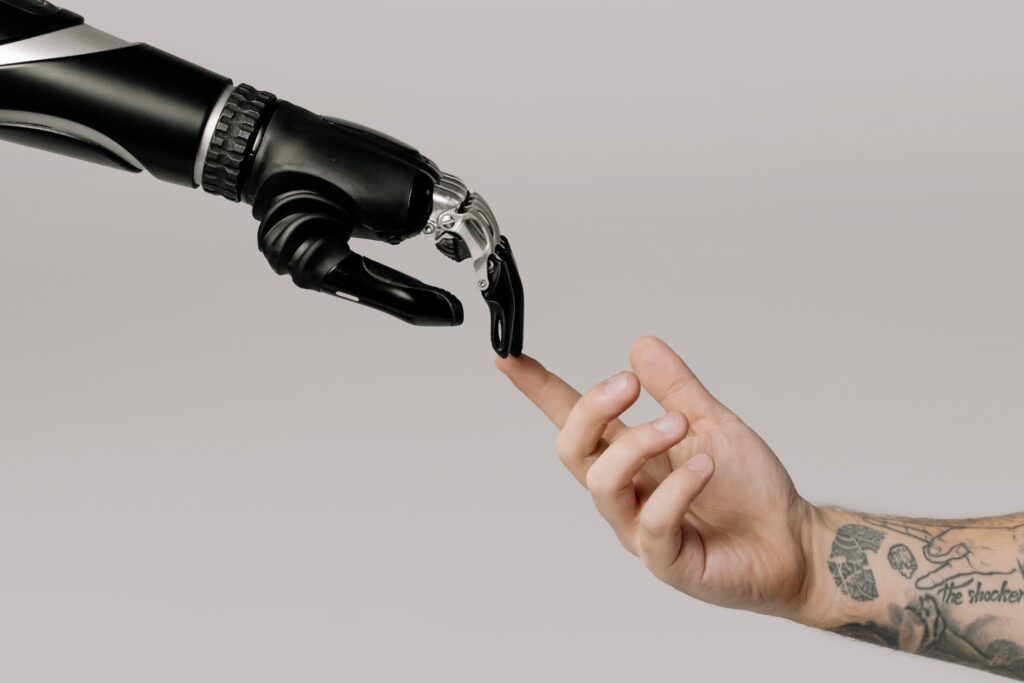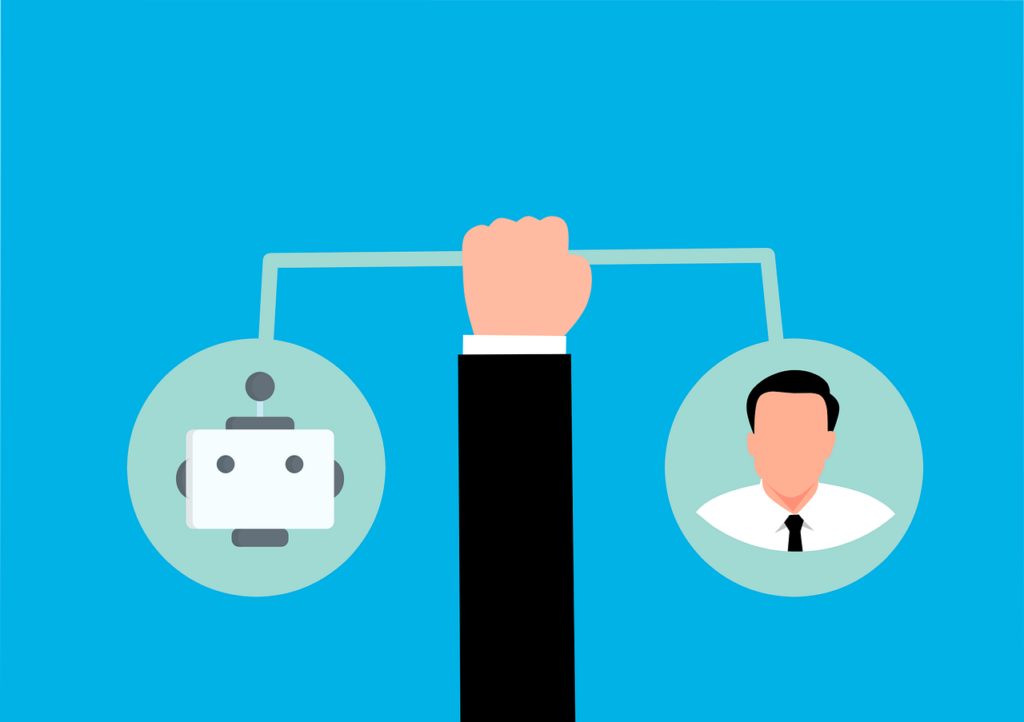In this article, we will examine the possible implications and prospects of AI’s role in replacing the human workforce. By exploring critical factors such as technological advancements, economic consequences, and ethical considerations, we aim to shed light on this complex and significant issue.
AI vs. Human
While AI can automate and enhance efficiency in specific jobs, it is unlikely to replace human labor. Let’s go more into this statement.
The Role of AI in the Workforce
AI’s capabilities boost efficiency by automating mundane and repetitive tasks, thereby granting human workers the opportunity to engage in more intricate and imaginative roles. Take, for example, the manufacturing sector, where AI-driven robots effortlessly handle monotonous assembly line operations. Consequently, human employees can channel their efforts toward strategic decision-making and inventive troubleshooting, fostering heightened productivity and effectiveness across organizations. Instead of replacing human work, artificial intelligence possesses the potential to augment and elevate human skills and abilities. By swiftly processing vast amounts of data, AI systems can uncover valuable insights that may elude human interpretation. In fields like healthcare, AI can assist doctors in diagnosing illnesses, formulating treatment approaches, and analyzing medical images. Through collaboration with AI systems, human experts can harness the capabilities of technology to provide more precise and efficient services. As AI automation progresses, it renders certain job positions obsolete and paves the way for fresh employment opportunities. The continuous advancement of AI technology fuels the need for proficient individuals capable of designing, upkeeping, and enhancing AI systems. Moreover, the integration of AI across diverse industries generates job prospects in fields like data analysis, algorithm development, and AI ethics. Instead of replacing human workers, AI tends to transform the labor market, urging individuals to adapt and evolve their skill sets accordingly.
Why AI Can’t Replace Human Force Completely
AI systems excel in tasks that involve clear patterns and structured data, demonstrating remarkable efficiency. Nevertheless, they may encounter difficulties when confronted with unforeseen or unconventional scenarios that demand adaptability and contextual understanding. Human employees, on the other hand, possess the inherent ability to navigate unexpected circumstances, make complex judgments, and overcome uncertainty. Consequently, industries such as emergency response, crisis management, and strategic planning highly prioritize the invaluable skills possessed by humans. Human employees possess a unique set of qualities, such as emotional intelligence, empathy, and creativity, that prove challenging for AI systems to replicate. This renders certain domains like counseling, teaching, and creative ventures less susceptible to displacement by AI since they heavily rely on human connection, critical thinking, and creative prowess. These distinctly human attributes play a vital role in numerous professions and contribute significantly to the overall enrichment of human civilization.
Why do Companies Overdose the Volume of AI?
Companies like Google have been at the forefront of AI development, constantly pushing the boundaries of what technology can achieve. While this relentless pursuit of innovation has undoubtedly brought about many positive advancements, it has also led to a situation where consumers can sometimes feel overwhelmed and saturated by the sheer volume of AI-driven products and services. Here is what really happened in the Google IO 2023. Google’s vast ecosystem encompasses numerous AI-powered applications, from search algorithms to personalized recommendations and virtual assistants. This ubiquity of AI can sometimes make it difficult for individuals to escape its presence in their daily lives. The constant influx of information, targeted ads, and algorithmic suggestions can leave consumers feeling bombarded and craving moments of respite from the relentless AI-driven digital environment.
Wrapping it All
Here is my honest thought, the potential for AI to replace human workers in the workforce is limited due to several factors. First, AI is still constrained in its capabilities, lacking the creative thinking and problem-solving skills that humans possess. Fields requiring such skills, like research, design, and strategic planning, will continue to rely on human expertise. Second, many jobs, particularly in the service industry, rely on interpersonal skills and empathy, which are difficult for AI algorithms to replicate. This human touch remains invaluable in customer-facing roles. Additionally, the development of AI technology is accompanied by the creation of new job opportunities in emerging fields like data science and machine learning, offsetting potential job losses. As a result, the complete replacement of human workers by AI is unlikely shortly. While AI will undoubtedly augment and transform various industries, humans will remain indispensable, bringing unique qualities and skills to the workforce that machines simply cannot replicate. Further Reading:
ChatGPT Now Browses the Internet for Better Accuracy in Responses How to Join and Use Google Bard? Generate DALL-E AI images for Free Using Bing Ai Image Creator

